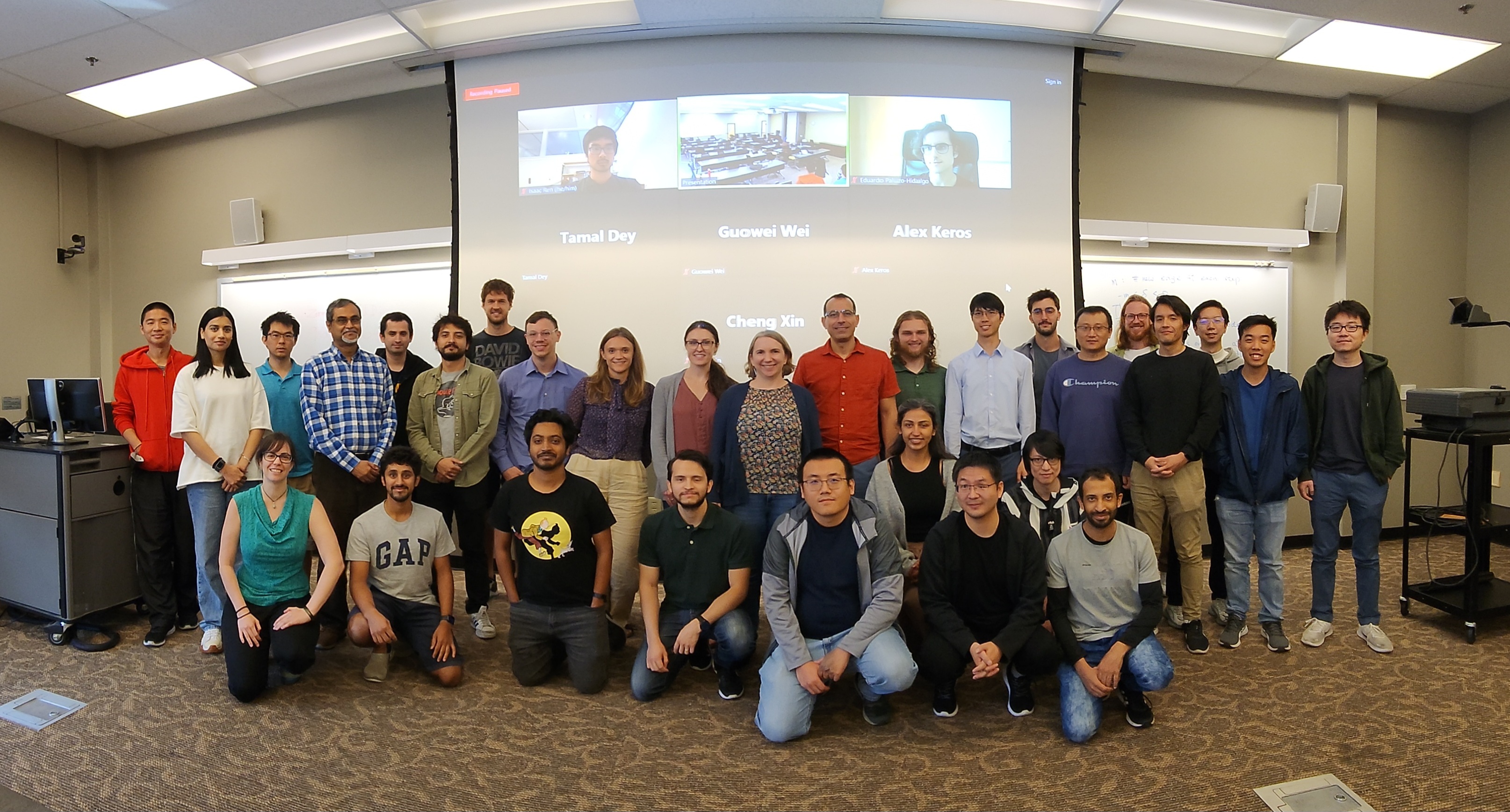
Photo taken on the final day of the workshop (West Lafayette, IN, Sep 29, 2023)

Photo taken on the final day of the workshop (West Lafayette, IN, Sep 29, 2023)
Link to recorded presentations at the workshop:

The 3rd workshop on Computational Persistence (ComPer 2023) will take place from Sep 25 to Sep 29 in hybrid mode at Purdue University, West Lafayette, Indiana. This workshop provides a forum to exchange ideas on computational aspects of topological persistence that fertilize advances in topological data analysis.
The schedule will be composed of invited and contributed talks on computational aspects of topological data analysis. Contributed talks can be suggested in the form of an abstract of at most two pages. A scientific committee will check the submissions and make a selection.
The first two issues of the workshop were online conferences - the upcoming workshop is the first one where on-site participation is possible. We encourage this option, but equally welcome submissions of researchers that attend remotely.
*(presenter is in bold)